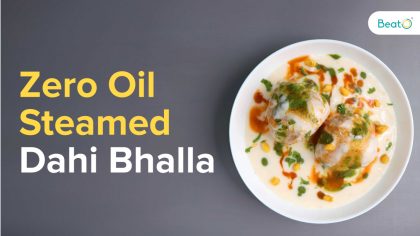Paneer is a common ingredient in almost every Indian household. It is a good source of protein for vegetarians and also has numerous health benefits. While it is enjoyed by everyone alike, it also raises the question of whether or not it can be enjoyed by people with diabetes.

People with diabetes need to take special care of what they should include in their diet. The diet should be rich in fibre and contain less carbohydrates. Let us try to understand how paneer can be included in your diabetes diet.
How Can People with Diabetes Include Paneer In Their Diet?
Paneer releases carbohydrates in a slower manner and it takes longer to digest. Also, it won’t lead to a spike in your sugar levels. Therefore, it can be considered suitable for people with diabetes.
A person with diabetes can consume paneer once or twice in a week. Coming to the time, a diabetic person should consume paneer at night. They should also make sure that they do not consume more than 60 gm everyday. They can include paneer in the form of grilled paneer, palak paneer curry, grilled paneer salad, etc.
You should make sure that you prepare your paneer dish using a low-fat oil and consume it in the right portion size. If paneer is overconsumed, it can lead to weight gain, high cholesterol level and water retention due to its sodium content.
Other Benefits Of Paneer
Apart from being great in taste, paneer also has a plethora of benefits. Some of them have been listed below-
Rich in protein
Since vegetarians cannot rely on animal protein, paneer is an excellent source of protein for them. Protein helps in building and repairing the muscles of our body and therefore, it is essential.
Aids weight loss
Due to the presence of linoleic acid in paneer, it helps in the fat-burning process and helps you in losing weight. It also keeps you satiated for a longer time which can result in avoiding unhealthy snacking.
Improves your heart health
Paneer is rich in Omega 3 fatty acids which are good for your heart health. It reduces the risk of stroke and heart attack and also controls your lipid profile.
Good for your bone health
Paneer is rich in Vitamin D and calcium which helps you in keeping your bones strong and healthy. Paneer can be beneficial for children as having a paneer-rich diet can help them in avoiding bone diseases such as osteoporosis.
Helps in relieving joint pain
Being rich in Omega 3 fatty acids, paneer is extremely beneficial for fighting rheumatoid arthritis. It can also help in relieving lower back pain and joint pains.
Helps in fighting cancer
As paneer contains linoleic acid, it can help in fighting stomach cancer, breast cancer and colon cancer.
Paneer Recipes for Diabetes:
Grilled Paneer Salad:
–Marinate Paneer cubes in a mix of light oil, lemon juice and your favourite spices.
–Grill the paneer until lightly charred and place on tomatoes, cucumber.
–Drizzle with lemon juice and grounded pepper for a refreshing and protein-packed salad.
Spinach and Paneer Stir-fry:
–Saute paneer cubes with garlic, ginger, sliced onions in a nonstick pan.
–Add chopped spinach and wait till the water is dried.
–Add turmeric, cumin, and a pinch of red chilli powder for a flavourful and nutritious side dish.
Paneer is a delicious and nutritious choice for individuals with diabetes, offering proteins, healthy fats and essential nutrients. As always, consult with your dietician to personalise your diabetes management approach.
Try these diabetes – friendly paneer recipes to add flavour and joy to your meals while supporting your health goals. With right choices and a balanced lifestyle, you can maintain stable blood sugar levels for a happier and healthier life.
Disclaimer :
It is crucial to monitor your blood sugar levels using a smartphone-connected glucometer on a regular basis. If you feel doubtful about whether or not you should consume a particular item, you should do a quick sugar check before and after you consume it.
Being a person with diabetes, you can enjoy your favourite treats by making sure that you keep the portion size in check. Overindulging can lead to a spike in your sugar levels. It’s important to discuss with your physician how a food item can affect your blood glucose levels. If you have any doubts about what you can include as a part of your diabetes diet, you should always speak to your doctor or health coach.
Get the best health advice with BeatO!




